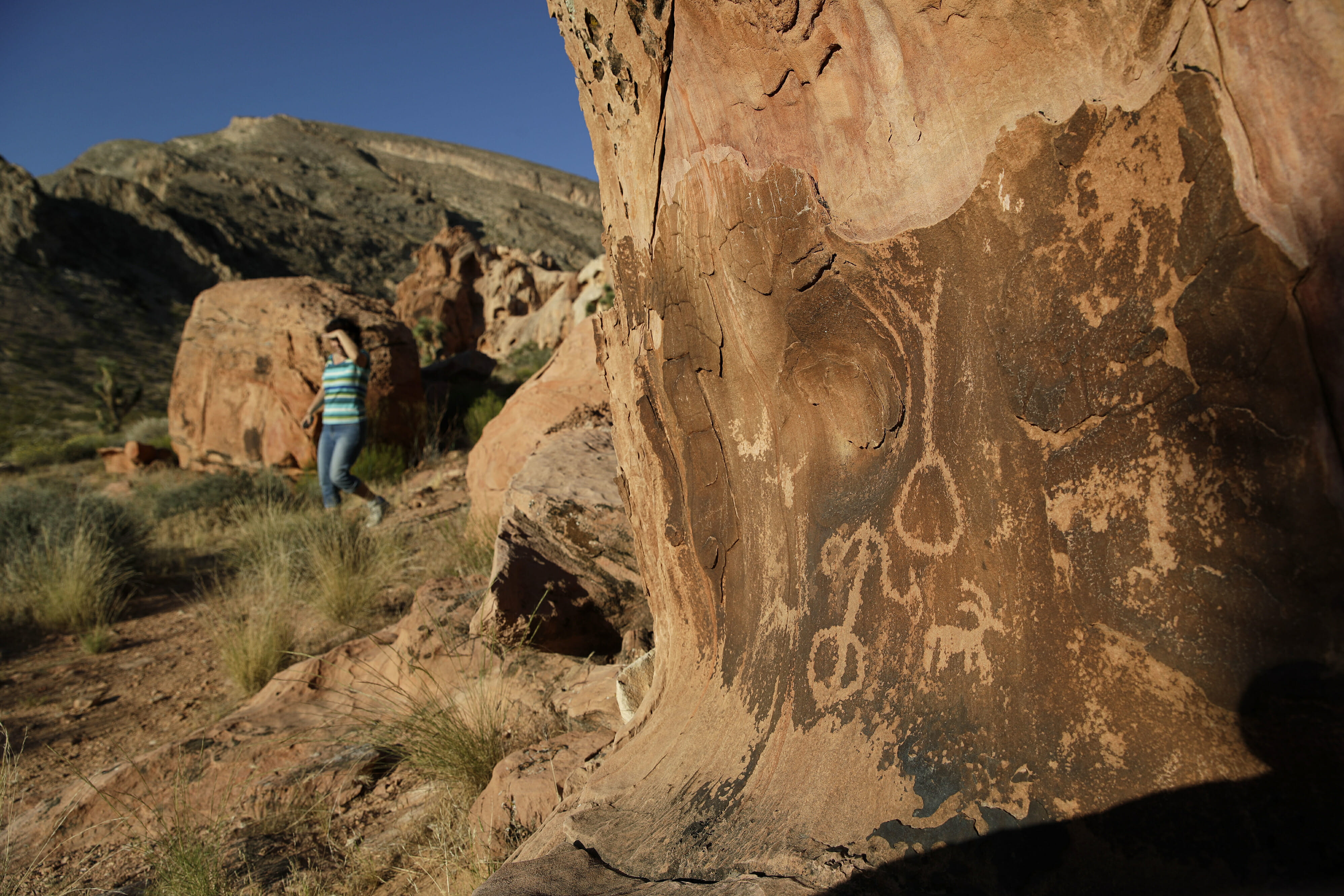
Interior boss: No monument changes planned, but up to Trump
WASHINGTON (AP) — U.S. Interior Secretary David Bernhardt said Wednesday he has no plans for additional changes to national monuments that were recommended by his predecessor, but that it’s ultimately up to President Donald Trump.
The comments at a Senate Appropriations subcommittee meeting are the latest indication that recommendations to shrink two monuments in Oregon and Nevada and change rules at six others remain relegated to backburner status as the White House deals with other issues.
Trump acted in December 2017 to shrink two sprawling Utah monuments on the recommendations of then-Interior Secretary Ryan Zinke, who was tasked with reviewing 27 national monuments around the country. Since then, he has done nothing else with Zinke’s recommendations.
The monument review was based on arguments from Trump and others that a law signed by President Theodore Roosevelt allowing presidents to declare monuments had been improperly used to protect wide expanses of lands instead of places with particular historical or archaeological value.
New Mexico Sen. Tom Udall, a Democrat, asked at Wednesday’s hearing if there were plans to move forward on the other eight monuments.
“I think the answer is no,” Bernhardt said.
He said he has not received any further instruction on Zinke’s report from Trump. “The president is ultimately the holder of the pen,” said Bernhardt, who was confirmed as Interior Secretary last month.
Bernhardt is a former lobbyist for the oil and gas industry and other corporate interests who became the acting secretary after Zinke resigned in December amid multiple ethics investigations.
A White House official who spoke on condition of anonymity because the official was not authorized to discuss deliberations said Wednesday a statement first made in March that the Trump administration was still considering taking action remains accurate.
Bonnie Brady, executive director of the Long Island Commercial Fishing Association, said it’s disappointing the administration won’t enact the recommendation to allow commercial fishing at the Northeast Canyons and Seamounts monument off the New England coastline. That would reverse what she considers an unfair designation by President Barack Obama in 2016.
Brady met with Zinke in 2017 and left feeling hopeful they would get relief, but said she’s becoming more frustrated.
“It’s unfortunate that the secretary is unwilling to do anything at this time because these areas are extremely important for the domestic commercial fishing industry,” Brady said. “They are very fertile fishing grounds.”
Dave Schott, president of the Medford-based Southern Oregon Timber Industries Association, called Bernhardt’s decision “just a horribly unfortunate situation” that puts the monument lands at greater risk for devastating wildfire.
Not shrinking the monument means more timber stands lost to production and less grazing on summer grasses, both of which could lead to more wildfires, he told the Mail-Tribune of Medford, Oregon.
Zinke also recommended allowing commercial fishing at the Pacific Remote Islands National Monument in the Pacific Ocean near Hawaii and at the Rose Atoll National Monument in the Pacific Ocean near American Samoa.
Trump’s decision to downsize the Bears Ears National Monument by 85% on lands considered sacred to Native Americans in southeastern Utah and to shrink Grand Staircase-Escalante National Monument by nearly half earned him applause from Utah’s Republican leaders who considered the monuments an example of federal government overreach.
Environmental, tribal, paleontological and outdoor recreation organizations have pending lawsuits to restore the full sizes of the monuments, arguing presidents don’t have the legal authority to undo or change monuments created by predecessors.
Zinke also advised Trump to shrink the Gold Butte National Monument in Nevada and the Cascade Siskiyou National Monument in Oregon.
There’s also a lawsuit filed by commercial timber organizations that claim Obama’s expansion of Cascade-Siskiyou during his last week in office was unlawful.
Susan Jane Brown, an attorney for environmental groups working to preserve the full size of Cascade-Siskiyou, called Bernhardt’s comments “good news” but said she’s still leery.
“This president’s claim to fame is impulsive and ultimately unlawful policy decisions, so monument defenders must stay vigilant,” Brown said. “Only time will tell whether our cherished national monuments are permitted to continue to provide countless benefits to this and future generations.”
____
McCombs reported from Salt Lake City. Associated Press writers Matthew Brown contributed to this report from Billings, Montana, and Andrew Selsky from Salem, Oregon.
The Western Journal has not reviewed this Associated Press story prior to publication. Therefore, it may contain editorial bias or may in some other way not meet our normal editorial standards. It is provided to our readers as a service from The Western Journal.
Truth and Accuracy
We are committed to truth and accuracy in all of our journalism. Read our editorial standards.
Advertise with The Western Journal and reach millions of highly engaged readers, while supporting our work. Advertise Today.












